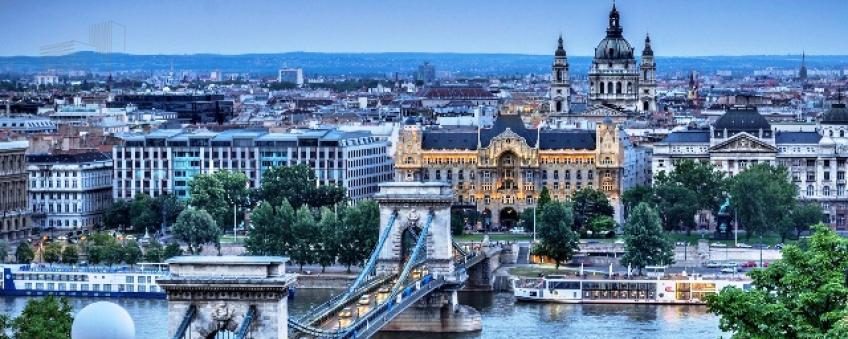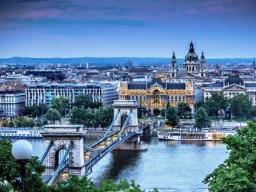Hungary

Hungary is a landlocked state with many neighbours – Slovakia, Ukraine, Romania, Serbia, Croatia, Slovenia and Austria. It is mostly flat, with low mountains in the north. Lake Balaton, a popular tourist centre, is the largest lake in central Europe.
The ancestors of ethnic Hungarians were the Magyar tribes, who moved into the Carpathian Basin in 896. Hungary became a Christian kingdom under St Stephen in the year 1000. The Hungarian language is unlike any of the country’s neighbouring languages and is only distantly related to Finnish and Estonian.
The capital city, Budapest, was originally was two separate cities: Buda and Pest. It straddles the River Danube, is rich in history and culture and famed for its curative springs. Hungary has a single-chamber parliament or national assembly whose 386 members are elected by voters every four years.
Hungary has some limited natural resources (bauxite, coal, and natural gas), as well as fertile soils and arable land. Hungarian wines are enjoyed throughout Europe. The country‘s main manufactured exports include electric and electronic equipment, machinery, foodstuffs and chemicals.
Hungary is a highly musical country whose traditional folk music inspired such great national composers as Liszt, Bartók and Kodály. Other famous Hungarians include Albert Szent-Györgyi, who discovered the existence of Vitamin C, writer and Nobel Prizewinner Imre Kertész and Oscar-winning film director István Szabó.


